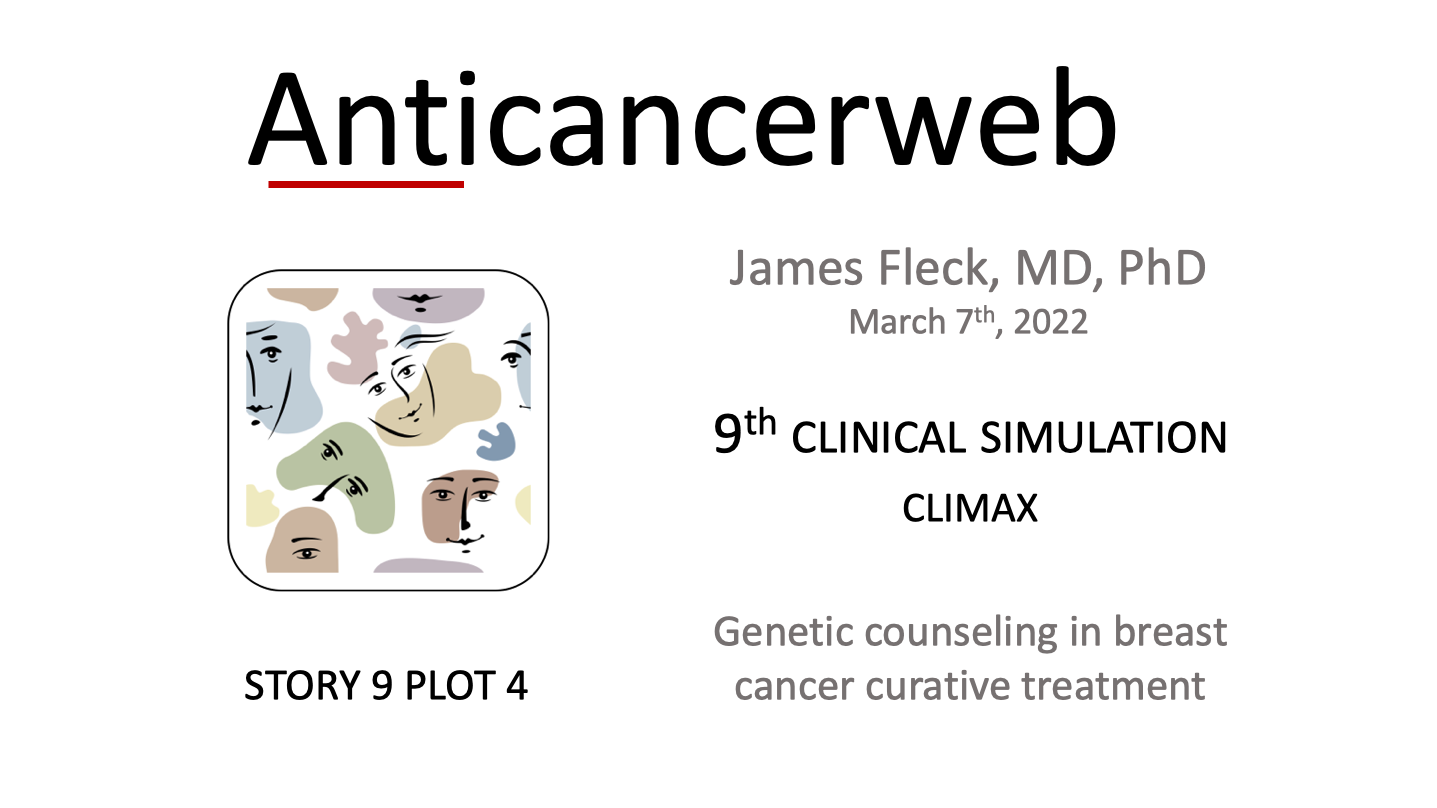
Lilith's Proactive Behavior | Climax
How to reconcile the curative approach to triple negative breast cancer with genetic counseling recommendations
(Fictional narrative by the doctor)
James Fleck: Anticancerweb 07 (03), 2022
Lyla was confident. She kept herself well informed and decided to face cancer using all available resources. She just asked to wait another three weeks before starting adjuvant chemotherapy. This was a recommendation made by the assisted reproductive team.
Touched by Lyla's goals, I agreed to delay her adjuvant treatment for a short time. Although there was no clear definition of the ideal time to start adjuvant chemotherapy, the delay would not exceed thirty days after her breast surgery. I was aware of the aggressiveness of triple negative breast cancer and used to recommend starting adjuvant treatment as early as possible. She had an excellent relationship with the genetic counseling and assisted reproductive teams, and they were all warned about time constraints.
I kept Lyla in weekly follow-up and remained focused on her cancer treatment.
Momentarily, Lyla began adjuvant chemotherapy. It was an outpatient treatment. Well-trained oncology nurses took a light and relaxed approach allied precisely with technical efficiency. Lyla attended chemotherapy sessions accompanied by Therese and they quickly developed a trusting relationship with the care team.
Throughout the adjuvant treatment, I kept Lyla in weekly follow-up. I was able to closely assess how she was coping with the toxicity of the treatment. Cardiac, pulmonary, gastrointestinal and neurological conditions were periodically checked by physical examination. She fully complied with all recommendations and had regular laboratory tests to assess blood cell counts, kidney and liver functions. Despite being a healthy young lady, she faced some adverse events. She had two pneumonias, associated with neutropenia, which required hospitalization and the use of intravenous antibiotics.
While adjuvant chemotherapy was still in effect, Lyla received the results of her genetic evaluation. Unfortunately, she had mutations for both tumor suppressor genes (BRCA1 and BRCA2). Therese did the same genomic evaluation and it was negative. This mutation followed an autosomal dominant inheritance pattern and, therefore, its expression would occur in 50% of the offspring.
Therese was ambivalent.
She was more self-confident as she had not inherited a high-risk factor for breast and ovarian cancer. However, her sister's test was positive and they both knew that this finding would bring new challenges for Lyla.
Lyla regretted the results of the exams, but her rationality helped in overcoming the new challenge imposed. Immediately, she celebrated Therese's negative test results. There were two reasons for her unpredictable excitement. One was the affection involving those two sisters and the other was that Lyla knew that her sister's negative test would secure her maternity plan. Therese would safely provide the surrogate uterus.
To be continued in PLOT 5 (falling action) …
* Attention: The story 9 will be published sequentially from PLOT 1 to PLOT 6 and you will always see the most recent posting. To read Story 9 from the beginning, just click in the numbered links located at the bottom of the homepage.
© Copyright Anticancerweb 2022
James Fleck, MD, PhD: Full Professor of Clinical Oncology at the Federal University of Rio Grande do Sul, RS, Brazil 2022

Please login to write your comment.
If you do not have an account at Anticancerweb Portal, register now.